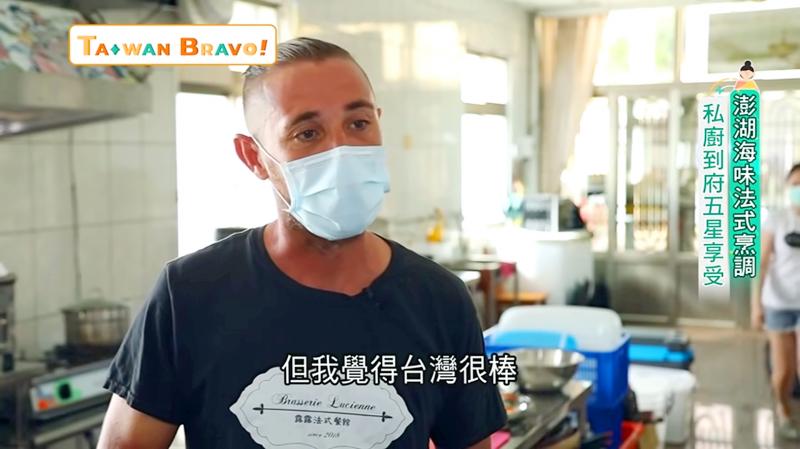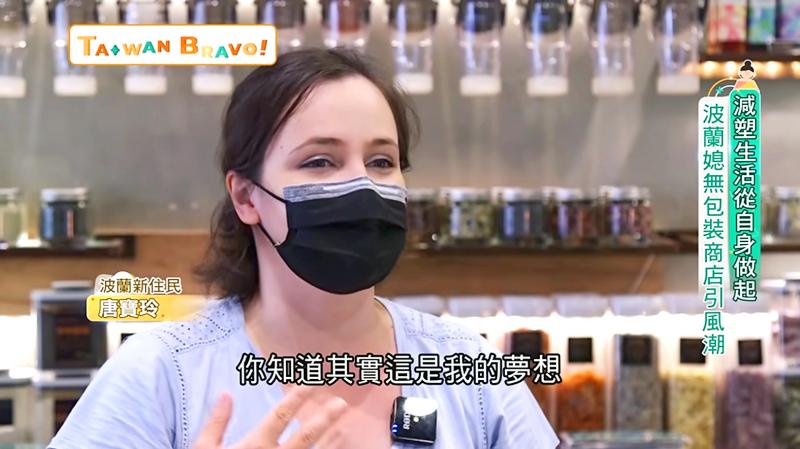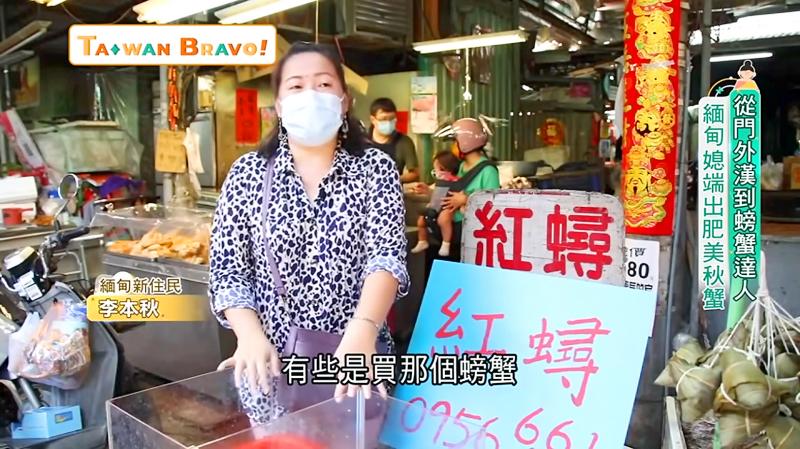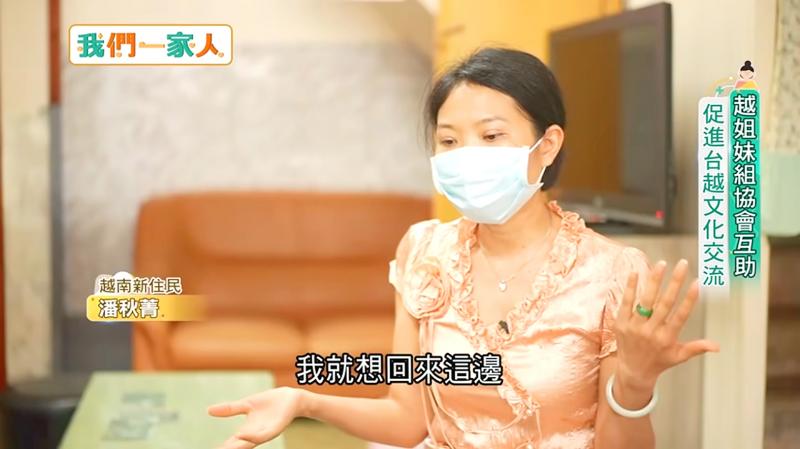Taiwan Bravo (我們一家人), brought to you by the Ministry of the Interior’s National Immigration Agency and SetTV (三立電視台), travels to 368 towns and villages across Taiwan, including the outlying islands of Penghu and Matsu, to record the experiences of new immigrants in Taiwan, and show their emotional journeys and their endeavors, giving audiences a window into their lives and stories.
The program will be broadcast at 2pm every Sunday, along with a special daily Taiwan Bravo themed segment on SetTV.
As an island, Penghu has access to plentiful fish stocks, which is what attracted French master chef Julian to its shores. Julian’s father was a fisherman, and so he gained a profound understanding of seafood from an early age, and knows how to cook fish to perfection.

Julian now works with a local bed-and-breakfast in Penghu, providing reservation-only cuisine using locally sourced seafood made using French cooking methods. The meals can be eaten at the brasserie or in the comfort of the bed-and-breakfast, and has already made a name for itself through the word of mouth.
The COVID-19 pandemic has affected the lives of people around the world and made them reflect more on how much they waste the planet’s resources. It was for this reason that Unpackaged, an environmentally friendly lifestyle store, opened in Taichung’s North District. The owner of the store is a Polish woman named Paulina Tarnowska, who originally came to Taiwan to study and eventually married a Taiwanese man.
Her story in Taiwan has been one of working to protect the environment, which led her and her husband to open a store encouraging customers to provide their own packaging, reuse shopping bags and containers, so that they do not have to waste packaging or buy more than they need. Their love for the environment has rubbed off on their customers, who have responded to their enthusiasm.

Autumn is bumper season for fresh crabs, but Lee Pen-chiu from Malaysia, who grew up in the mountains in northern Myanmar, had never set eyes on a live crab until she left home and started working in a seafood company as an accountant and met her husband, who worked as a crab supplier.
Lee went from not knowing anything about crabs to being able to prepare meals using crabs on her own to becoming a master chef, developing her own recipe for Southeast Asian curried crab.
Many new immigrants that have come to take up a new life in Taiwan have not been able to return home for the past two years because of the pandemic.

Pan Chiu-ching is from Vietnam. She has set up a new immigrants’ association that brings together other women in her situation to share meals, so that they can offer each other support. As well as wanting to help others, Pan is also a devoted mother, and to make ends meet she applies her talents to other lines of work such as massage, manicure and mending clothes. Never one to complain, she hopes to settle in Taiwan and provide for her children.
The stories of these new immigrants, told in the Taiwan Bravo TV program sponsored by the New Immigrants Development Fund, relate their experiences living in Taiwan and show how different cultures can come together. Through in-depth interviews, showing the diverse aspects and cultures of new immigrants living in Taiwan, viewers can witness the moving stories of these people.
You are welcome to follow their stories on social media.

Taiwan Bravo is broadcast every Sunday at 2pm on SetTV, Channel 54.
Brought to you by the Ministry of Interior National Immigration Agency and SetTV, sponsored by the New Immigrants Development Fund
(Advertorial)
Taiwan Bravo Line account: https://lin.ee/UvcPzdd
Taiwan Bravo Facebook: https://www.facebook.com/SETwearefamily/
Taiwan Bravo Web site: http://setwearefamily.setn.com/
Taiwan Bravo YouTube: https://bit.ly/331eyXb

Alain Robert, known as the "French Spider-Man," praised Alex Honnold as exceptionally well-prepared after the US climber completed a free solo ascent of Taipei 101 yesterday. Robert said Honnold's ascent of the 508m-tall skyscraper in just more than one-and-a-half hours without using safety ropes or equipment was a remarkable achievement. "This is my life," he said in an interview conducted in French, adding that he liked the feeling of being "on the edge of danger." The 63-year-old Frenchman climbed Taipei 101 using ropes in December 2004, taking about four hours to reach the top. On a one-to-10 scale of difficulty, Robert said Taipei 101

Taiwanese and US defense groups are collaborating to introduce deployable, semi-autonomous manufacturing systems for drones and components in a boost to the nation’s supply chain resilience. Taiwan’s G-Tech Optroelectronics Corp subsidiary GTOC and the US’ Aerkomm Inc on Friday announced an agreement with fellow US-based Firestorm Lab to adopt the latter’s xCell, a technology featuring 3D printers fitted in 6.1m container units. The systems enable aerial platforms and parts to be produced in high volumes from dispersed nodes capable of rapid redeployment, to minimize the risk of enemy strikes and to meet field requirements, they said. Firestorm chief technology officer Ian Muceus said

MORE FALL: An investigation into one of Xi’s key cronies, part of a broader ‘anti-corruption’ drive, indicates that he might have a deep distrust in the military, an expert said China’s latest military purge underscores systemic risks in its shift from collective leadership to sole rule under Chinese President Xi Jinping (習近平), and could disrupt its chain of command and military capabilities, a national security official said yesterday. If decisionmaking within the Chinese Communist Party has become “irrational” under one-man rule, the Taiwan Strait and the regional situation must be approached with extreme caution, given unforeseen risks, they added. The anonymous official made the remarks as China’s Central Military Commission Vice Chairman Zhang Youxia (張又俠) and Joint Staff Department Chief of Staff Liu Zhenli (劉振立) were reportedly being investigated for suspected “serious

Nipah virus infection is to be officially listed as a category 5 notifiable infectious disease in Taiwan in March, while clinical treatment guidelines are being formulated, the Centers for Disease Control (CDC) said yesterday. With Nipah infections being reported in other countries and considering its relatively high fatality rate, the centers on Jan. 16 announced that it would be listed as a notifiable infectious disease to bolster the nation’s systematic early warning system and increase public awareness, the CDC said. Bangladesh reported four fatal cases last year in separate districts, with three linked to raw date palm sap consumption, CDC Epidemic Intelligence